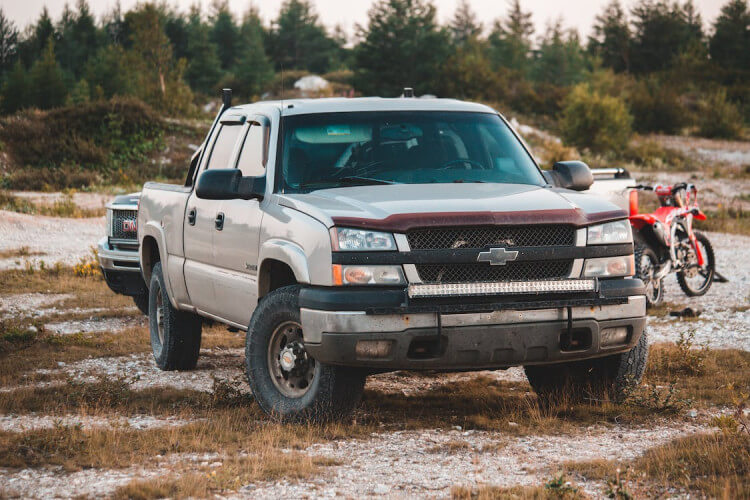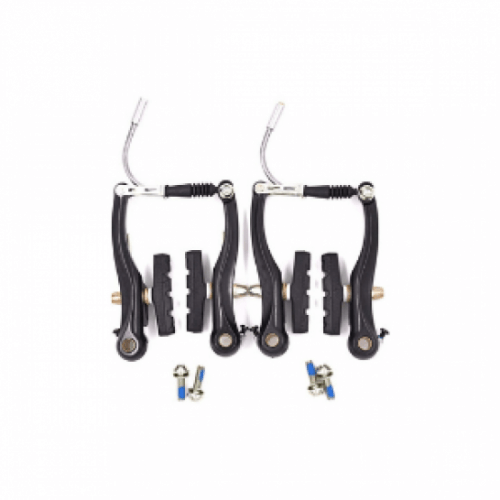How Different Types of Tyres Vary From One Another? - Pdf Slider

Tyres come in a variety of types and models. Whether you just want to deal with the season change comfortably or boost your vehicle's performance by a long shot, a set of tyres is out there. In general, one model varies from another based on two parameters – rubber composition and tread design. Depending on where and how you use your Michelin Tyres Newcastle Upon Tyne, these will be adjusted. In this article, we will explore all the different types of tyres found in the market.
Summer Tyres:
In the summer season, the effective grip is the primary priority. So, you need to fit tyres which can provide it. Summer tyres are made using a special soft rubber material, which can adhere to the ground easily. That accounts for the excellent handling provided by this type of tyre. They are ideal for both wet and dry streets as long as the temperature is above seven degrees Celsius. Summer tyres are also known for providing superior driving comfort as they produce low noise. In addition, they have a high fuel economy and long durability due to their low rolling friction.
Aside from the rubber compound, the tread pattern also influences the performance of summer tyres. Unlike winter tyres, these have fewer channels and no sipes on the tread. That is because deep grooves in the snow tyres are crucial for water expulsion. But for summer tyres, increasing the contact patch becomes necessary to ensure optimum grip.
But it is these features that make summer tyres unsuitable for the frosty weather. The rubber hardens, and the tread pattern lacks the ability to cut through the snow, ice and sludge.
Winter Tyres:
When the temperature is low, winter tyres become necessary. Be it snow, ice, rain, or mud – they can tackle all types of road conditions. Made from material rich in natural rubber, winter tyres do not lose their flexibility in frigid weather. So, the braking distances remain short, accounting for safe rides.
In terms of construction, the tread consists of deep grooves and thick blocks, which provide the necessary traction on the snow-filled roads. A large number of sipes also helps eliminate as much water as possible, reducing the risk of aquaplaning.
We know summer tyres are unsuitable for the cold season. The same is the case for winter tyres in hot weather. The material will become way too malleable in the heat, resulting in low fuel efficiency and increased noise.
All-Season Tyres:
Summer and winter tyres are the ideal choice for places where harsh climate prevails. But if the weather is relatively mild, switching between two sets of tyres can be pretty stressful. In such cases, it is best to opt for all-season tyres. That is because they are a hybrid of summer and winter tyres. By using them, you save quite a bit of money. You also avoid the tyre maintenance and storage hassles that come with the seasonal models.
Run Flat And 4x4 Tyres:
In the above section, we classified tyres on the basis of climate suitability. That is how most vehicle owners like to choose the perfect set for them. However, it is still vital to understand the role of two more types of tyres. These include run-flat tyres and 4x4 tyres. The former utilises the run-flat technology (RFT), allowing punctured tyres to continue running. The speed is, of course, restricted, and so is the distance up to 80 miles.
So, they let you drive your vehicle to a safe spot or repair centre without getting stranded. 4x4 tyres, on the other hand, are constructed for off-road conditions. Their wide-set treads provide a significant amount of traction on rough terrains, preventing them from getting blocked.
Final Words:
Now you know all the information about the different types of tyres available in the market. We have done half the work for you. Your task is to pick a set of Cheap Tyres Newcastle Upon Tyne among these that suit your needs the best.
YOU MAY ALSO LIKE
Chevy Silverado 2500 Hd- Houston Chevrolet Dealership
We are here to help you find the best deals on new and used cars, trucks, and SUVs. Our HOUSTON Chevrolet dealership has been serving auto shoppers for years.
Why should you have Best V brakes
Best V Brakes 2021 will surely help you to instantly stop your ride in muddy conditions or even on a rainy day.
Ideal Steps for Selling Private Number Plates
Buying and selling a vehicle where you generally will lose money after you have had fun driving the vehicle. With a private number plate, you can buy it and have fun displaying it on your vehicle before selling it at a higher price. This is why people are buying and selling private number plates and why they are investing large sums of money in buying exclusive cherished numbers in particular.
Similar Links
Tata Motors to acquire Ford India's Sanand plant to expand production capacity
Tata Motors said with its manufacturing capacity nearing saturation, the acquisition is timely and a win-win for all stakeholders
Hyundai discontinues i10 Kappa 2 engine variants in India
The South Korean auto manufacturer, Hyundai, discontinues with its Hyundai i10 Kappa 2 engine variants in India. The company made this move in a bid to increase the price gap between the top end versions of i10. In order to avoid Grand i10 overshadow
AUTOMOTIVE CHAINS & SPROCKETS
Directory of leading Indian automotive chains manufacturers, automotive chain sprockets suppliers and exporters.
Similar PDFs
Driving Instructors in Calgary
A driving instructor in Calgary will prepare you for a career as a commercial driver. If you have a Class 1 Melt license but no experience with it. We offer proper one-on-one instruction as well as practical training at several places across the city and along the highway. Load securement training in the field, log book training, pre-trip inspection training, and other trucking-related document training are all available.








